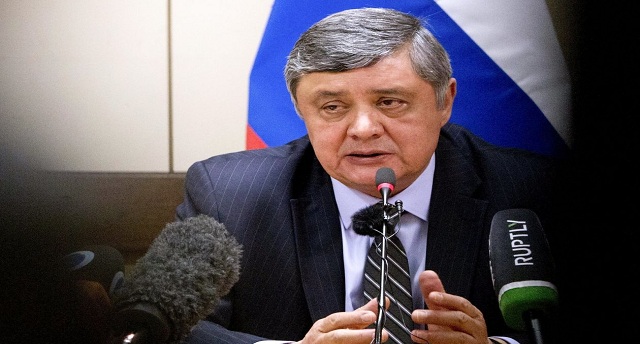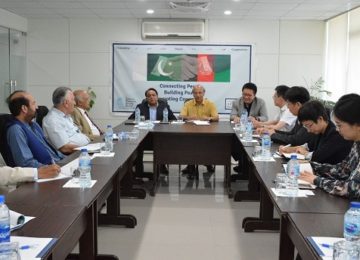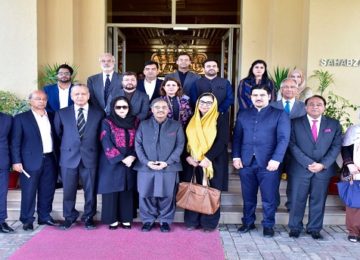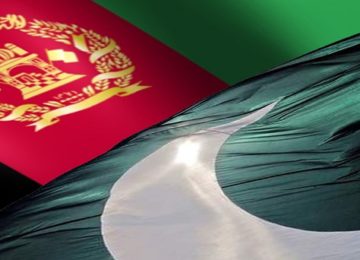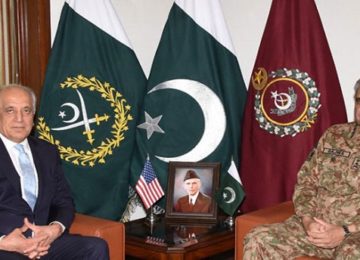WASHINGTON—The Taliban have accepted a Russian invitation to travel to Moscow to join regional talks on Afghanistan’s future that are likely to exclude the U.S., people familiar with the decision said.
Moscow has taken an increasingly active role in efforts to end the 17-year war in Afghanistan, citing concerns about the emergence of Islamic State and the U.S. failure to negotiate a political solution. The Taliban’s decision to accept the invitation comes at a time when the group is extending its political engagement with the U.S., in what appears to be a continuing effort to hedge between rival powers.
Zamir Kabulov, Russia’s presidential representative to Afghanistan, said in an interview with Interfax that the Taliban had been invited to the Sept. 4 talks. He said the meeting was “in line with efforts to launch the process of national reconciliation in Afghanistan.”
The Afghan ambassador to Russia, Abdul Kayum Kuchay, also speaking to Interfax, said Russian officials had met several times with representatives of the Taliban.
“It’s good news that Russia is calling on the Taliban (to come) and wants them to talk with representatives of the government and find a solution to the problem of Afghanistan,” he said.
The State Department didn’t immediately respond to a request for comment. The Taliban’s top political envoy, Sher Mohammad Abbas Stanekzai, was expected to attend. His office declined to comment.
Russia has hosted multilateral talks on Afghanistan in the past, but this is the first time the Taliban are known to have accepted an invitation. Other regional powers including China, India, Pakistan and Iran were expected to attend the meeting next month.
The meeting in Moscow could provide a rare opportunity for the Afghan government to interact with the Taliban’s political office on a public platform.
In recent years, the Taliban have also engaged in discussions with Pakistan and China about the peace process, and maintained contacts with a range of others including the United Nations, aid groups and NGOs.
As first reported by The Wall Street Journal last month, a U.S. delegation led by the acting deputy assistant secretary for South and Central Asia, Alice Wells, met the Taliban in Doha in July. The U.S. delegation is pursuing a number of confidence-building measures with the group. Officials since have told the Journal that this was one of several meetings and that the U.S. delegation plans to continue regular engagements with the Taliban.
A goal of the effort is a successful cease-fire between the Taliban and the Afghan government during a religious holiday this month. On Sunday, Afghan President Ashraf Ghani made the first move, with a proposal for a conditional three-month cease-fire in the U.S.-backed war against the Taliban.
The offer followed a violent week in Afghanistan that left hundreds of dead after a provincial capital was overrun in eastern Ghazni province, high-school students were blown up in their classroom in Kabul and scores were killed in battles in Baghlan and Faryab provinces.
The Afghan war was once an area of cooperation between the U.S. and Russia. But in recent years, the rival powers have blamed each other for surging violence and declining government control.
U.S. officials repeatedly have accused Russia of backing the Taliban, charges that Moscow strenuously denies. Russia says that it maintains contact with the Taliban to work on a political solution and to share information to counter the rise of terrorist groups in Afghanistan.
The Taliban’s political office was opened with U.S. backing in 2013, but it closed within hours after a dispute with the Afghan government. Since then, it has operated in a semiofficial capacity as an embassy for the group.
Moscow hosted an earlier round of the regional talks in April last year with representatives from Afghanistan, China, India, Iran, Pakistan, and the former Soviet states. The U.S. declined an invitation to join.
This article originally appeared in The Wall Street Journal on August 20, 2018. Original link.
Disclaimer: Views expressed on this blog are not necessarily endorsed or supported by the Center for Research and Security Studies, Islamabad.



